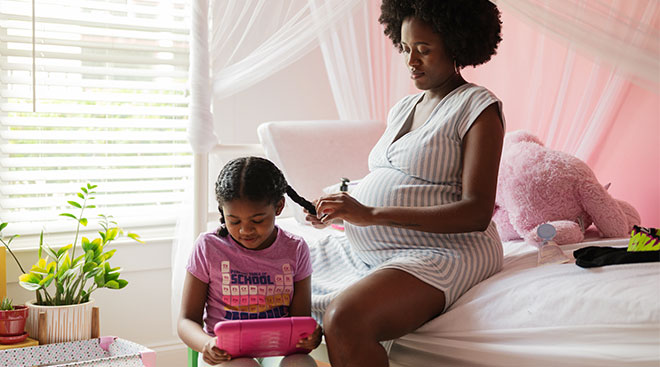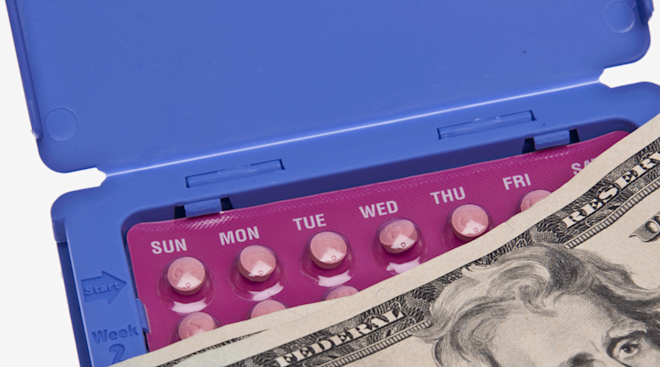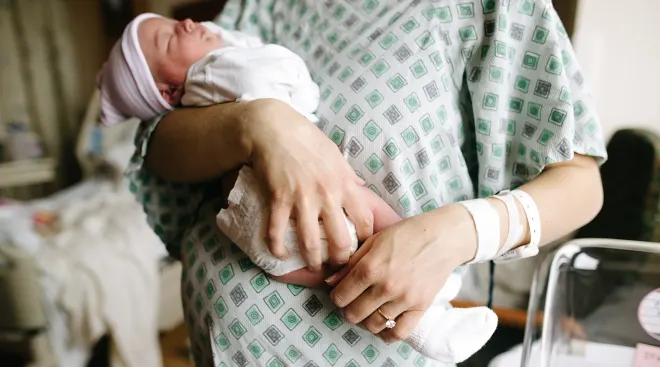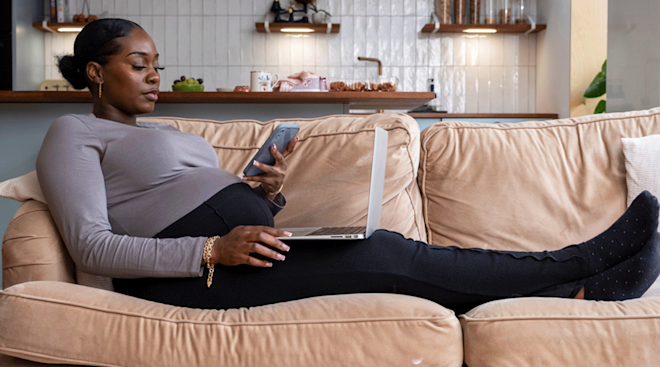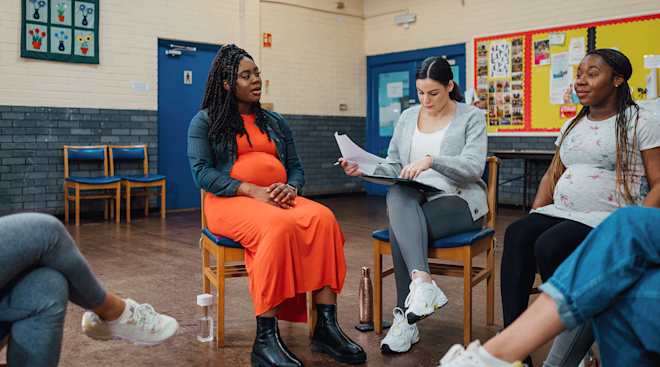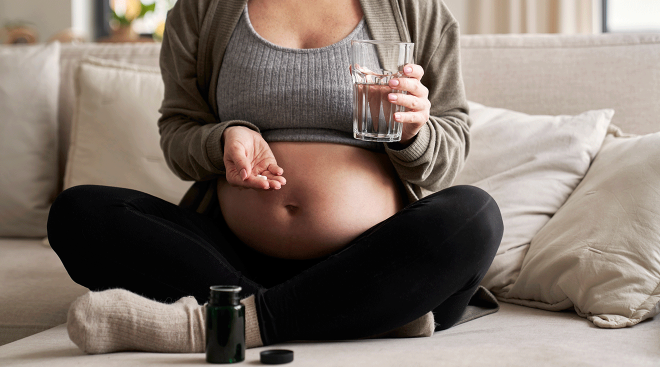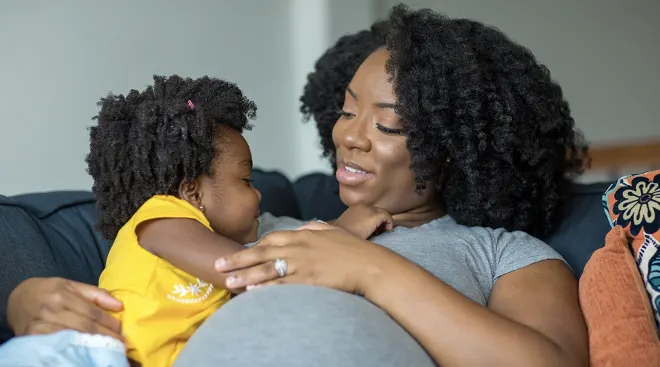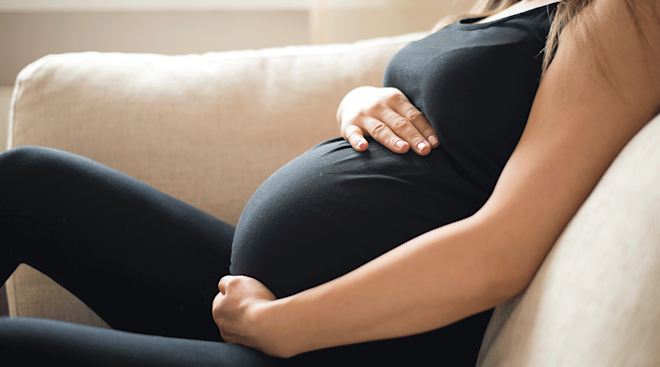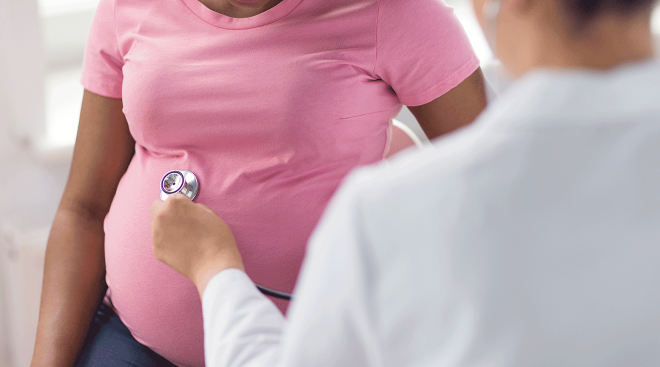4 Ways Black Moms-to-Be Can Combat Disparities in Prenatal Care
As a doula, I assist women in giving birth, providing physical, educational and emotional support before, during and after labor. About 80 percent of these births are in the hospital. It’s always such an honor and privilege to be welcomed into the birthing spaces of women and to witness the beauty that is childbirth.
However, as a birth worker and as a Black woman who has birthed her own children, I also see how prevalent racism and prejudice still are within hospitals and among white health care providers. According to the US Centers for Disease Control and Prevention (CDC), Black women are two to three times more likely to die in childbirth than their white counterparts, and are 50 percent more likely to go into preterm labor than white women. Black women are dying in childbirth at extremely alarming rates, and the cause is clear: racism.
Their pain and health concerns are often dismissed by doctors, as if Black women don’t feel pain or have a higher pain tolerance then their white counterparts, and they often experience a lack of prenatal care. Kira Johnson was a Black woman who unnecessarily lost her life after giving birth via c-section at a Los Angeles hospital. She was left unattended and in pain while she bled internally for more than 10 hours before the doctors at her hospital stepped in. Her husband started a nonprofit in her honor and petitioned congress to pass a bill that helps sustain the care for women during and after childbirth to help eliminate the health disparities Black women face.
The health disparities can even be seen in high profile celebrity cases like Serena Williams, who almost died while giving birth due to a pulmonary embolism (which is when one or more arteries in the lungs becomes blocked by a blood clot.) Serena has dealt with this condition for a while, so when she started to feel symptoms, she didn’t hesitate to bring it up with her doctors—who dismissed her concerns and almost killed her. Luckily, Serena survived the ordeal. But that isn’t always the case for countless other Black women who don’t make it out of childbirth alive. And yet the CDC acknowledges that most of these pregnancy-related deaths are preventable.
Black women also have to deal with microaggressions and sly remarks in the birthing room that, too often, impair our care. We saw this in the recent clip of singer Ciara, who posted a video of her having given birth just moments ago. In the background we hear what sounds like a white, male doctor pressuring her to sing, saying, “Common, we’re gonna hear her sing!” and Ciara replies, “No, why do you gotta put it on me??” and he responds by saying, “Come on. Go!” After singing, she comments on how she barely had it in her to get that out. Ciara herself stated that she hadn’t even been able to look at her baby in the face before being asked to entertain. Coercion is just one manifestation of racism experienced by Black women in a broken maternal health care system.
So how can Black moms-to-be combat this? The most important thing is to know your options. Here are a few things you should do to prepare for your upcoming birth:
• Hire a doula. Studies show that hiring a doula can lower cesarean rates by 50 percent. While doulas are not advocates, we can help you advocate for yourself by helping you understand your options and everything that is available to you.
• Take a childbirth education class. Taking a childbirth class will help you become educated on the process of birth, so you can make an effective birth plan.
• Research your hospital. All hospitals have different policies. For example, if you want to be able to walk around during labor or labor in water, you should make sure your hospital has wireless monitors and birth pools or showers, and that you can actually access them. You should also check the hospital’s cesarean rates. Asking other Black women about their personal experiences and seeking doula services can help Black moms-to-be decide where the best place to give birth might be.
• Make sure your OB is onboard with your birth plan. It’s essential that you feel heard and not rushed during your prenatal visits. If you find that your concerns are being dismissed, consider finding another OB.
As we move forward in a climate where Black lives are constantly disregarded and trivialized, we must continue to advocate for change in the health care system and dismantle and reform all the institutional racism and bureaucracy in hospitals. Having a baby is one of life’s many joys, and Black women deserve to experience childbirth without the expense of their own lives.
About the expert:
Jacquelin Knighton is a birth and postpartum doula, childbirth educator and owner of Doulas of Prince George’s County in Maryland. She lives in Maryland with her husband and two children. You can follow Doulas of Prince George’s County on Facebook and Instagram.
Please note: The Bump and the materials and information it contains are not intended to, and do not constitute, medical or other health advice or diagnosis and should not be used as such. You should always consult with a qualified physician or health professional about your specific circumstances.
Plus, more from The Bump:
Navigate forward to interact with the calendar and select a date. Press the question mark key to get the keyboard shortcuts for changing dates.
































